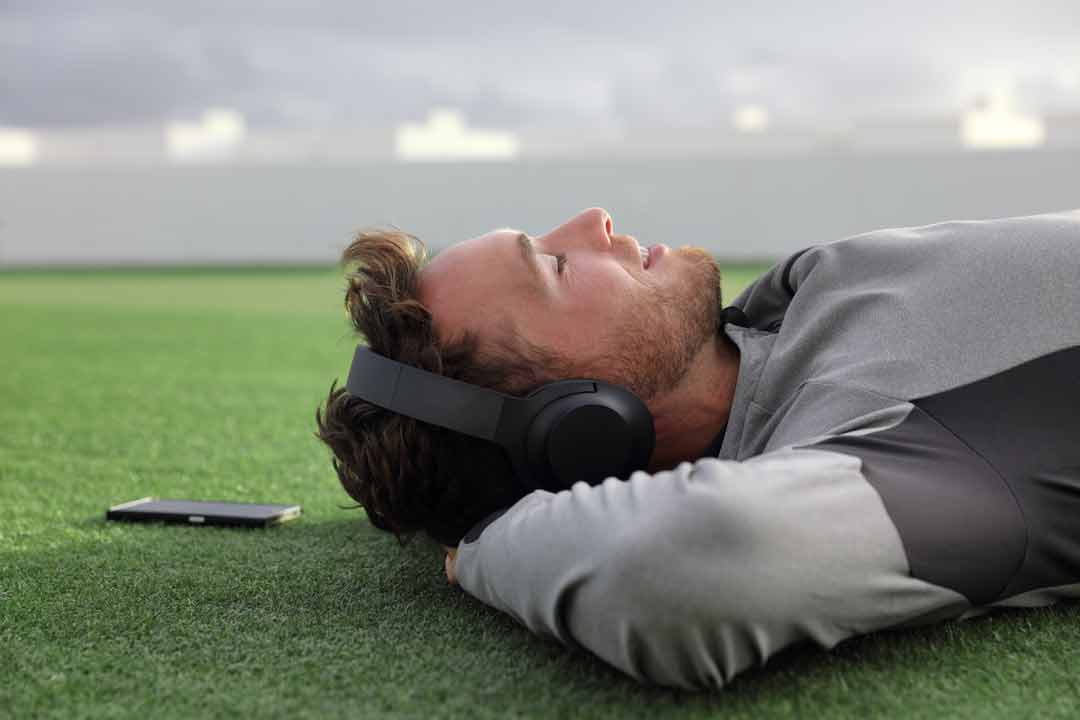Physical Vs Mental Fitness
There is but one way to live life to its fullest- being fit. Understanding the benefits of all-round fitness and knowing how active you should make it easier to improve the overall quality of your life. To help you live better, here’s how you can benefit from mental and physical exercise regardless of your age, sex or physical ability.
When talking about fitness, both mental and physical fitness come into play. More often than not, physical fitness gets plenty of attention, and for a good reason. A healthy body can counter conditions such as heart disease and diabetes, and help you maintain confidence as you age.
However, mental fitness is just as important as physical fitness, and should not be neglected in your self-betterment plans.
Mental fitness means having a brain and emotional health in tip-top shape. It may not necessarily mean training to ace an IQ test, but a series of exercise that helps slow down, decompress and boost a flagging memory.


Aerobics (cardio)
Aerobics involves maintaining an increased heart rate for an extended period of time. Types of cardio exercises include running, swimming, biking, rowing, dancing, and jumping rope.

Strength
Also called Resistance Training. It’s a physical activity with the purpose of increasing muscle strength and mass. Examples include weightlifting, dumbbell and bodyweight exercises.

Balance
This is where you activate your abdominal muscles for stability and control of your body. Balance exercises can include yoga, tai chi and stability ball exercises.

Flexibility
Bragging about how much you can bench is no fun if you have trouble tying your shoes. Flexibility saves you from tight hips, hamstrings, hip flexors and makes you as strong as you can be.

Why you need to be fit and importance of physical fitness
Weight control leads you towards fitness
Along with diet, exercise plays an essential role in managing your weight and preventing obesity. To maintain your weight, the calories you are taking must equal the energy you burn. To lose weight, you must utilize more calories than you eat and drink.
Manage your sugar and insulin levels
Exercise can reduce your blood sugar level and help your insulin work effectively. This can lower your risk for metabolic syndrome and type 2 diabetes. And if you already have one of those diseases, exercise can help you to maintain it.
Feel Happier through fitness
Exercise has been shown to improve your mood and reduce feelings of depression, anxiety, and stress. It produces variations in the parts of the brain that control stress and anxiety. It can also boost brain sensitivity for the hormones serotonin and norepinephrine, which relieve feelings of depression.
Better Mental Health and fitness
Regular exercise can have an extremely positive influence on depression, anxiety, ADHD, and more. It also relieves stress, increases memory, helps you sleep better, and boosts your overall mood. You don’t have to be a fitness fanatic to reap the benefits – browse through our site and discover how to reap these benefits.
How to Achieve Mental Fitness
Be positive with yourself and improve your fitness
Affirmation, or positively talking to yourself, involves strengthening neural pathways to bring your self-confidence, well-being, and satisfaction to a higher level. To start, make a list of your good qualities. Remind yourself that you don’t have to be perfect. Set goals for what you want to make better and start small to avoid becoming confused.
Stop Multitasking
Many think that multitasking enables you to get more things done at once, but it creates more problems than it solves. Focusing on one task at a time will improve your concentration and help you to be more productive.
Try Something Different
New practices can also set you on the way to mental fitness. You can fit new approaches into your daily life by trying new foods, new ways to accomplish routine tasks, traveling to new places or trying a new route to the grocery store.
Read More
Reading is great for your brain. Your brain processes every word you read, including this one. Beyond the mechanics, reading helps you visualize the subject matter on the pages before you, and imagine what voices sound like in the written dialogue.
This can also be a great relaxation technique
Top Fitness Tips for Mental and Physical Exercise.
General physical fitness and targeted exercises to improve stability can prevent falls. But so can staying mentally ready to maintain brain health. A sharp mind helps you to think — and stay — on your feet. Join us and learn to strike a balance.
No Results Found
The page you requested could not be found. Try refining your search, or use the navigation above to locate the post.
150 Exercises You Can Do
As a bonus, we are giving a free fitness exercise ebook to start your healthy lifestyle
5 Alarming Signs of Over-Training

When does it happen?
When you train too hard that your body cannot cope and regain strength from all the stress in your muscles, overtraining happen. Yes, it’s not a myth! It’s those days when you feel like you are underperforming. Then you tend to push yourself to the limit to be satisfied with your workout. Yes, most of the time, it’s the right decision to get over that laziness but sometimes, it’s just really your body telling you to slow down a bit.
More often than not, people misinterpret it for simply slacking. That’s when overtraining happens. You lose a lot – energy, appetite, stimulus when it hits you.
More isn’t always better. Regressing or getting injured are the definite results of overtraining. Everything will snowball from there. You wouldn’t want that to happen to read up the signs and how to avoid them.
#1. SIGN: WEAKENED PERFORMANCE
It feels like you are giving it your 110% percent, but in truth, it’s only 80% of your goal performance. What a bummer right? Overtraining indeed affects your over-all performance from grip, power, endurance, explosiveness, agility. This is caused by a damage to your central nervous system.
The recovery of the nervous system is slower than the muscular system. In turn, this affects your performance in the areas mentioned. A few bad pieces of training days are normal. But when bad days turn to weeks or worse to months of experiencing difficulty in training, that’s when you should acknowledge that something is wrong – and moreover, you should TAKE A BREAK!

SOLVE IT: TAKE SOME REST
Once again, resting is not slacking or laziness. You are just recharging your muscles so you can go back to giving 110% and translate that to 110% performance in the gym also. Do know that the body’s ability to recover depends on many factors, including nutrition, sleep, age, work, relationships, financial.
Considering these things, know-how and how long your body copes up. If could be in the form of sleep, spending time outside the gym, seeing friends, going on a short vacation, visit your doctor, massage, or combination of any of those things. Train your mind and body to acknowledge fatigue and fix it right away so you can go back in track the soonest.
AVOID IT: MAKE SURE YOU HAVE A GOOD PROGRAM
Determine which program matches your body’s recovery mechanism. You train as much only as much or as fast as your body can heal and replenish your strength. That’s why it’s best to consult with a coach rather than making a program yourself.
Especially if you will be joining a competition, planning to step-up your routine, or simple aiming for ultimate fitness. A professional would certainly introduce deloading or recovery weeks that your body requires.

#2. SIGN: GETTING SICK
Sudden body pains and sickness that you have not experienced before are signals of overworked and under-recovered muscles. It’s a different issue if it’s caused by not performing the routines properly, know the difference. When you’re body gets stressed, cortisol or stress hormone levels spike up. If you don’t allow them to go back to normal levels, it damages your immune system. You might have fever, flu, or generally feel under the weather.
The same goes for your digestion. The high level of stress hormones also affects your digestive system negatively so you might experience loss of appetite or worsen diarrhea. You definitely don’t want this to happen at crucial days in your life like during a competition, big family event, and important day at work.
The adverse effect of high-stress hormone levels doesn’t stop with digestion and weakening the immune system. It even affects your sex drive, unfortunately. Both for men and women – no one is spared! So you should.
SOLVE IT: EAT RIGHT AND CLEAN AND (ONCE AGAIN) REST!
Good nutrition helps regulate hormonal levels and functioning. If you are training, but you don’t seriously stick to your diet, that might be another reason why you are getting sick and feel bruised. Healthy-whole foods that fit your calorie-plan and hydration are really helpful factors in your body’s recovery.
Hydrate yourself with around 30-40 ml/kg of bodyweight. If it’s usually warm in your place and you tend to sweat a lot, consume more fluids as necessary. For muscle mass gains without gaining fat, it is recommended to consume food in a small 150-200 calorie surplus. It’s a different story when you’re on a caloric-deficit plan – recovery is harder and might take a longer period of time than usual. As for your macronutrients counter, these are the rules of thumb.

AVOID IT: CONTROL STRESS
Especially for beginners, practice leaving or allocating your energy per set properly. This will allow you to perform optimally in each routine. If you tend to use a lot of energy very early on, the rest of the sets might be compromised.

#3. SIGN: PROBLEM WITH SLEEP
This problem is still very much related to high levels of hormones – the ones called epinephrine and norepinephrine, more commonly known as the “fight or flight” hormones. Mind you, hormones are not bad at all. These specific hormones support our survival during times of crisis. But, when you overtrain and not getting enough rest, you are taking away the chance for your hormones to settle down to normal levels. Having them constantly at high levels will definitely cause anxiety or insomnia.

SOLVE IT: TRAIN YOUR MIND TO SLEEP
Aside from good nutrition to help regulate cortisol level, train your body to cool down after your workout so you can have a good night’s sleep. It can be in a form of breathing technique, or some soothing concoction, listening to music, massage, nice warm bath.
AVOID IT: MANAGE SLEEP DEBT
Aside from workout stress, a lot of things lead to sleep debt. Like when you need to work overtime in the office or cram for an exam. If it’s really necessary, then just make up for it the next day. But, if it’s for things like binge-watching episodes of your favorite series of mindlessly scrolling through your social media account – do go on yourself and schedule it for some other time when you are not that busy.

You only have one body, and you need to take care of it holistically – mental, physical, emotional/spiritual.
Do those tips to guaranteed optimum performance!
Other Articles you may like.
Register Now
Sign up today and Get Expert Fitness Advice Right delivered right in your mail


